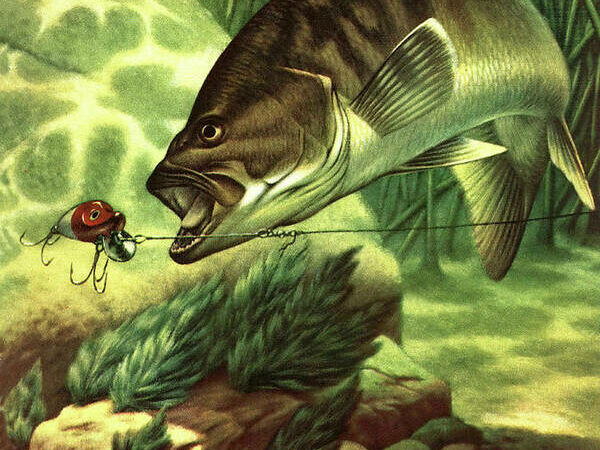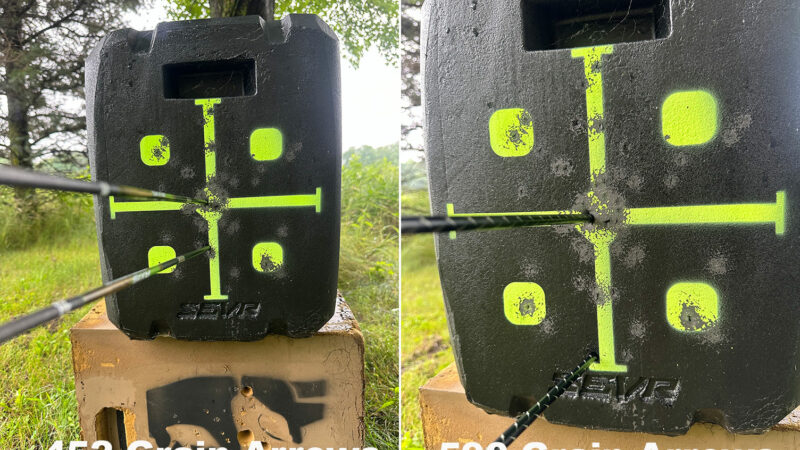Video: “Go Buy a Boat!” How Close Can You Fish to Someone Else Without Being a Jerk?
How badly do you need to catch a fish? Naturally we all want to connect when we get on the water, but have you ever asked yourself how much catching a fish really means to you? Are you willing to ruin someone’s day to get it done? Are you willing to be jerk to catch a striped bass? Are you willing to sabotage somebody else’s bite to get your own fix?
If we were all relying on catching fish to avoid starving in winter, maybe a bit of ruthlessness could be justified, but we’re not. The anglers in the viral video here (shared by @stripedbasshunt) aren’t starving to death either, yet they needed to catch a striped bass so badly they were willing to get close enough to the angler on the jetty that it stopped him from catching any more fish. The boat angler’s repetitive refrain of “worry about yourself” is another way of saying “I know I’m being a real ass here, but I can’t think of anything better to say to justify my actions.”
Sadly, where I live in New Jersey, this kind of behavior is all too common in saltwater when the striped bass are running. It didn’t shock me as much as many other people, but it does provide some fodder to dive into some fishy etiquette. After all, how close is too close?
Shore Anglers vs. Boat Anglers
As far as I’m concerned, anglers on foot always have the right of way. That said, the video that spring boarded this story perfectly captures what are, in my opinion, the lowest level of boating anglers. What cannot be argued by anyone is that an angler with a boat, kayak, or SUP has a huge advantage over an angler fishing on foot. Vessels allow you to travel farther, faster, and reach areas where shore anglers simply cannot go. You can cover tons more water in a single trip. In the time it might have taken the kid on the rocks to walk a few hundred yards down the beach to find more fish, the anglers on the boat could have covered miles of water looking for action. In the striper surf game especially, anglers can’t move around as efficiently, often putting in time, effort, and leaning on luck to get themselves where a cast from the beach lands in range of feeding fish. Mugging an angler like this when you have a few hundred horsepower on your sled and gobs of electronics is downright embarrassing.
Though it’s more personal for me than a hard rule, I try to stay far out of surfcasting range when running a boat. But in any fishing scenario, if a bank angler can easily hit your boat with a cast, you are way, way too close. The worst infraction I ever witnessed was off Montauk, New York, years ago when stripers were blitzing right in the back of the waves. The surfcasters were having a field day, and all the boats kept their distance—except for one. One guy just had to get in closer than the rest, and he almost got in major trouble for the stunt. Caught in the waves, he nearly beached the boat, and even though he managed to escape, he ruined the bite for every angler on the beach—all of which had walked long, steep cliff trails to get there.
Even in scenarios where I am fishing tight to the bank, if I see foot anglers approaching, I’ll back off. I don’t believe the “first come, first serve” rule applies in these cases, because again, I can quickly pivot to another area.
Read Next: Best Striped Bass Lures
Trout Stream Etiquette
Etiquette is more hotly debated among trout fishermen than any other group. The terms “low hole” and “high hole” are part of common vernacular whether you’re dealing with fishermen on foot or rowing drift boats. What they mean is that you’re trying to work a hole or run, and another angler slides in at the top or bottom of the same hole. In some cases, like the combat steelhead fisheries across the Great Lakes, you’d better get used to this, because there are so many anglers on the rivers at times, everyone is just jockeying for enough room to make a drift. But on other trout streams, the unwritten rules are different.
It’s (supposed to be) understood that the angler who got to a hole or run first earned the right to fish the entire zone top to bottom. If you were gunning for that spot, sorry, move on. Go upstream or downstream, but, if possible, get out of eyeshot of the other angler. Similarly, if you see an angler sitting streamside at a pool, the spot is not fair game because he or she isn’t in the water casting. It’s not uncommon for trout fishermen to stake out a spot waiting for an insect hatch and rising trout. Can this be frustrating on more popular and crowded rivers? Of course, it can, but barging in can make what’s supposed to be a tranquil day outside stressful and awkward.
Trolling Etiquette
I’ll admit that I’m not a huge fan of trolling for anything, but sometimes you have no choice. As an example, if I’m spending the gas money to get offshore to the tuna grounds and they won’t hit jigs or poppers, yeah, I’ll troll because it took a lot of effort to get there, and I want that meat in the box. Offshore fishing is one arena where you wind up with a bunch of boats trolling a small area. Walleye fishing would be another. But if everyone isn’t playing by the same rules, this can get ugly fast.
Trolling—despite what too many anglers think—doesn’t make you special or give you the right of way to do what you want. A prime example is during striper season when five boats are casting to a school of boiling fish and a guy on the troll decides to pull his lines right through the blitz, instantly putting the fish down. For the life of me, I can’t understand this move. Not only are you ruining the fun for everyone else, but you’re only going to catch one or two while ruining the fun instead of getting off the troll, casting, and catching a bunch like everyone else.
When multiple boats are trolling the same area, obviously giving each other room is wise, but if you must troll fairly tight together, take the time to note any patterns. Are the bulk of the boats trolling one direction and turning around at the same point for another pass? Never be the guy going against the grain in close quarters and do everything you can to get out of the way of a boat that’s hooked up to avoid tangles and even more ire and headache.
The post Video: “Go Buy a Boat!” How Close Can You Fish to Someone Else Without Being a Jerk? appeared first on Outdoor Life.
Source: https://www.outdoorlife.com/fishing/fishing-etiquette-too-close/




